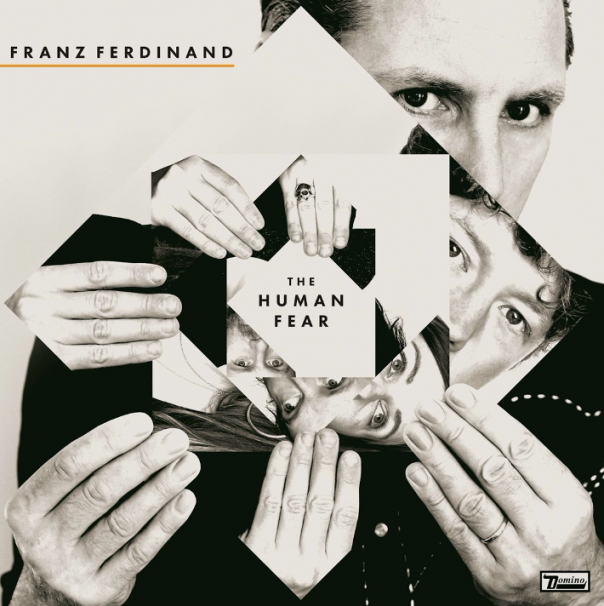ALBUM REVIEW: Franz Ferdinand’s observations on humans’ fears, and their consequences

Franz Ferdinand, “The Human Fear.”
It’s the old “quality over quantity” trope. It seems that artists whose songs are dense and literate, packed with meaning and craft, don’t do mass production. Two classic examples: Randy Newman and David Gilmour.
The Human Fear
Franz Ferdinand
Domino Recording Company, Jan. 10
7/10
Get the album on Amazon Music.
Another is Franz Ferdinand, the Scottish quintet led by Alex Kapranos, which is just now releasing The Human Fear, only its fifth album of new material since the band’s 2004 debut. The album features the usual mix of styles – from jaunty synth-forward pop to driving guitar rock to sweeping piano-and-strings balladry – brought together with Kapranos’ lyrics that alternate effectively between the direct and the allegorical. Songs with the depth of most of the 11 featured here can’t really be churned out every year or two.
Many of the songs on The Human Fear address various ways people’s fears foil existing relationships, block new ones from being formed and hamper people from getting the most from life. “Audacious,” the leadoff track, is about summoning up the boldness to do what has to be done when we “feel the fabric of existence … come unspun.” “There’s no one to save us, so just carry on,” Kapranos sings.
And in Kapranos’ view, people have constant opportunity to deal with such fears. On “Everydaydreamer,” the protagonist is confused and paralyzed, unable to seize his dreams but not willing to let them go, either. A similar state is presented on “The Doctor,” in which Kapranos presents a hospital patient who’s grown used to the care and attention he’s getting. It’s a comfortable rut, not unlike that which many of us face every day. He’s aware of his conundrum: “Though I feel just a little bit better, I could feel so much better – can’t you see?” But as with so much of life, a solution isn’t offered: “I’ve become accustomed to this level of affection.”
“The Birds” and “Bar Lonely” come with slightly different takes on acceptance. The former, which closes the album with its brittle but insistent layers of mid-tempo guitars, talks about how being among the pigeons in George Square in Glasgow might be preferable to being “with others who know … who we are, what we’ve done.” “Bar Lonely,” co-written with bassist Bob Hardy, paints a darker picture: “Where can you go where no one knows your name … No one’s glad that you came.” This is also the hardest-driving song on the album.
Other songs here present similar situations in which, even if Kapranos identifies a problem or a specific fear, there’s ambivalence, or even cluelessness, about how to move forward. On the sweeping “Tell Me I Should Stay,” while the music builds from a stately piano figure before evolving into something poppier, when it seems Kapranos is on the verge of a romantic breakthrough, there’s still questioning: “Kiss me while I’m still here/ Come on hold me kiss me … Tell me I should stay here.”
RELATED STORIES:
• Fatherhood defuses Franz Ferdinand frontman’s fears
• Alex Kapranos of Franz Ferdinand picks his favorite best-of albums
• FFS: A marriage, if Franz Ferdinand and Sparks knew what marriage was
A modicum of advice comes with “Build it Up,” in which Kapranos advises that opening up, sharing, taking and giving have to be conscious efforts.
The Human Fear has its welcome side-trips, too. On “Black Eyelashes,” Kapranos recounts a trip to Greece to reconnect with his family identity. And “Cats” delves into the profound truth that cats aren’t dogs and can’t be expected to offer what they can’t.
Maybe that’s less of a side trip than it seems on first blush.
“Hooked,” with its synthesizer barks and bleeps, sums up the overriding theme of this album – that we’re all in this emotional battle together. “Everybody here, got the human fear. So that’s all right with me.”
